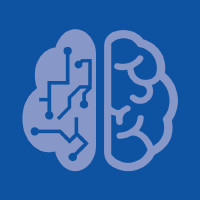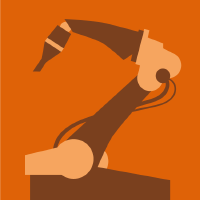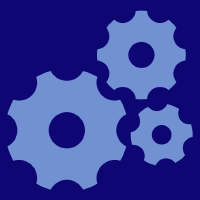Topic Menu
► Topic MenuTopic Editors



Smart Product Design and Manufacturing on Industrial Internet
Topic Information
Dear Colleagues,
In recent years, artificial intelligence and big data technologies, powered with Industrial Internet and web environment, have had huge impacts on research and development activities concerning product design and manufacturing fields. It is obvious that Industrial-Internet-based paradigms, systems, key enabling technologies, models, and algorithms for smart product design and manufacturing are playing an important role in making Industry 4.0/5.0 a reality. Topics associated with keywords like smart product design, smart manufacturing, product maintenance and services, robots and actuators, big data and intelligent algorithms, etc., in the context of Industrial Internet and web environment, often constitute the focus of both academic and industrial sectors. It is necessary to collect key contributions from the above fields, sum up the current progress on both academic research and industrial practices and present them to the public.
On the basis of the reasons mentioned above, this Special Topic Collection aims to explore a wide range of issues related to the product design and manufacturing with artificial intelligence and big data on Industrial Internet and web environment. Potential authors can feel free to involve any group journal as the host of their manuscripts. We welcome original research articles, reviews, short communication, and technical notes. Research areas include (but are not limited to) the following topics:
Smart Product Design:
- Fundamentals, such as Industrial-Internet-based paradigms, architectures, and systems; computational geometry and graphics issues in product design; datasets and deep learning for 3D shapes and product semantics, representation learning for 3D shapes and product semantics, and intelligent generative and retrieval models for product design including text2shape, voice2shape, sketch2shape, image2shape, and graph2shape; topology optimization, finite element analysis and optimization, bond graphs, and Modelica for dynamic issues in design; etc.
- Methods and practices, such as key enabling technologies, case study, and industrial scenarios and applications on Industrial Internet and web environment; data-driven and intelligent conceptual design; design for X, intelligent parameterized CAD, product service system design, product mass customization design, product platform and modular design; intelligent computational design, generative design especially for additive manufacturing; crowdsourcing design; Kansei engineering and emotional computing in product design; smart electromechanical system design, materials design; next-generation CAD software models on web; etc.
Smart Manufacturing:
- Fundamentals, such as Industrial-Internet-based paradigms, architectures, and systems related to service-oriented manufacturing, social manufacturing, cloud manufacturing, networked collaborative manufacturing, digital manufacturing, mass customization, on-demand manufacturing, and shared manufacturing; issues with manufacturing interactions and collaborations; intelligent and interconnected equipment, protocols, and sensor networks; human factors within the context of Industry 4.0/5.0; blockchain technologies; low carbon and social impacts in manufacturing; meta verse and VR/AR in manufacturing; etc.
- Methods and practices, such as key enabling technologies, case study, and industrial scenarios and applications on Industrial Internet and web environment; intelligent factory and production lines; intelligent assembly; smart equipment modeling and control; smart process technologies and experience representations; IOT and sensing/measuring networks, devices on web and manufacturing data sampling, CPS/CPSS, and digital twins; production planning and scheduling; APS/MES/DCS; intelligent process monitoring and quality control; materials processing and logistics, intelligent inventory; manufacturing performance analysis and optimization; sustainable production supply chain; new CAPP/CAM/APS/MES/DCS software models on the Internet or web; etc.
Smart Product Maintenance and Services:
- Fundamentals, such as Industrial-Internet-based paradigms, architectures, and systems related to maintenance service principles, MRO lifecycle, and product service systems; maintenance service flow modeling and scheduling; quality of services evaluation; etc.
- Methods and practices, such as key enabling technologies, case study, and industrial scenarios and applications on Industrial Internet and web environment; IoT and sensing networks, product CPS/CPSS, and digital twins; smart remote monitoring and performance prediction of product usages; product fault diagnosis and executive reliability, product predictive maintenance, and MRO modeling; smart configuration and running for product service systems, service workflow control and management, etc.
Smart Robots and Actuators:
- Fundamentals, such as Industrial-Internet-based paradigms, architectures, and systems related to robot-driven manufacturing and maintenance, robotic actuators; actuators in smart manufacturing and control systems; robot and actuator thinking; human–robot/actuator interactions; etc.
- Methods and practices, such as key enabling technologies, case study, and industrial scenarios and applications on Industrial Internet and web environment; robots and actuators on web; smart robot grasping, cognitive robots for manufacturing and maintenance, and robot path planning and scheduling; smart control for robots and actuators; etc.
Big Data and Intelligent Algorithms:
- AI-related datasets, models and algorithms, computing powers for product design, manufacturing, maintenance and services, and robots and actuators, such as feature engineering and prompt engineering with special industrial fields; symbol-based AI including production rules, frames, ontology, knowledge graphs, CBR, and decision-making; computing-driven AI including neural networks, machine learning, deep learning, and causal inference; NLP, large language models (like chatGPT), and multi-modal models; swarm intelligence, multi-agents, and collective intelligence; learning algorithms including federated learning, transfer learning, reinforcement learning, representation learning, and few-shot learning; etc.
- Big data for product design, manufacturing, maintenance and services, and robots and actuators, such as big data analytics, data flow processing, data cleaning, big data visualization, etc.
Please note that authors can submit their papers to this Special Topic Collection at any time. Papers will be published online immediately after their acceptance and without delays caused by whether all paper collections are ready.
We look forward to hearing from you.
Prof. Dr. Pingyu Jiang
Prof. Dr. Jihong Liu
Prof. Dr. Ying Liu
Prof. Dr. Jihong Yan
Topic Editors
Keywords
- Industrial Internet
- web-based applications
- Industry 4.0/5.0
- smart product design
- smart manufacturing
- product maintenance and services
- robots and actuators
- big data and intelligent algorithms
Participating Journals
| Journal Name | Impact Factor | CiteScore | Launched Year | First Decision (median) | APC | |
|---|---|---|---|---|---|---|

Actuators
|
2.3 | 4.3 | 2012 | 19 Days | CHF 2400 | Submit |

Algorithms
|
2.1 | 4.5 | 2008 | 17.8 Days | CHF 1800 | Submit |

Big Data and Cognitive Computing
|
4.4 | 9.8 | 2017 | 24.5 Days | CHF 1800 | Submit |

Future Internet
|
3.6 | 8.3 | 2009 | 17 Days | CHF 1600 | Submit |

Journal of Manufacturing and Materials Processing
|
3.3 | 5.2 | 2017 | 16.2 Days | CHF 1800 | Submit |

Machines
|
2.5 | 4.7 | 2013 | 16.9 Days | CHF 2400 | Submit |

Robotics
|
3.3 | 7.7 | 2012 | 21.8 Days | CHF 1800 | Submit |

Systems
|
3.1 | 4.1 | 2013 | 18.8 Days | CHF 2400 | Submit |

Preprints.org is a multidisciplinary platform offering a preprint service designed to facilitate the early sharing of your research. It supports and empowers your research journey from the very beginning.
MDPI Topics is collaborating with Preprints.org and has established a direct connection between MDPI journals and the platform. Authors are encouraged to take advantage of this opportunity by posting their preprints at Preprints.org prior to publication:
- Share your research immediately: disseminate your ideas prior to publication and establish priority for your work.
- Safeguard your intellectual contribution: Protect your ideas with a time-stamped preprint that serves as proof of your research timeline.
- Boost visibility and impact: Increase the reach and influence of your research by making it accessible to a global audience.
- Gain early feedback: Receive valuable input and insights from peers before submitting to a journal.
- Ensure broad indexing: Web of Science (Preprint Citation Index), Google Scholar, Crossref, SHARE, PrePubMed, Scilit and Europe PMC.


